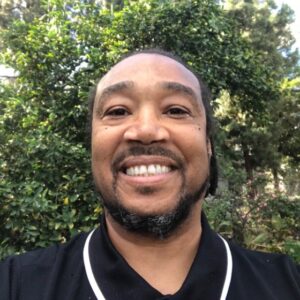How to incorporate racial and cultural equity into prevention messaging, training, and other communication.
This interactive skill-building workshop will explore the use of culture in Substance Use Disorder (SUD) prevention communications. We will explore how the enhanced National Culturally and Linguistically Appropriate Services (CLAS) Standard – Communication and Language Assistance provides guidance on improving:
- Trust Among Various Populations
- Participant Comfort and Satisfaction
- Program Effectiveness
- Positive Participant Outcomes
Learning Objectives:
- Review Cultural Humility.
- Explore the enhanced National Culturally and Linguistically Appropriate Services (CLAS) Standard – Communication and Language Assistance.
- Learn how to incorporate racial and cultural equity into prevention messaging, training, and other communication.
- Practice methods to incorporate racial and cultural equity into prevention messaging, training, and other communication.
- Develop a plan to incorporate racial and cultural equity into prevention messaging, training, and other communication.
- Share experiences and learn from others.
About the Workshop:
- It is an interactive, educational, and mutual learning session designed to create specialized results and products. This 3-hour workshop is longer than the typical webinar and requires more preparation beforehand.
- This workshop will include collaborative activities, allow for time to work on your community’s issues, and participants will work on a process that will generate a product that can be used in their communities.
- Participants are urged to participate as a team (at least two members of a program) to ensure that the workshop will lead to the desired result. There are hands-on interactive activities.
Presented by Michael Browning:
 Michael Browning, nationally recognized public health and Substance Use Disorder program developer, policy analyst, and trainer, has a passion for constituent-led community advocacy. He has provided support to several governmental agencies by providing alcohol, tobacco, and other drug prevention proven practices in capability building, training, and day-to-day technical assistance to assist the departments in planning, grantee support and technical assistance and community engagement. Including and not limited to: US Federal government, State of California, District of Columbia, Atlanta, County of Los Angeles, Kern County, the County of San Bernardino, and other CA counties. He is a proven grant writer and program developer. He was a senior administrative analyst for the University of California, Berkeley - Institute for the Study of Social Change (now: Institute for the Study of Societal Issues, Prevention by Design). He is currently the Interim president of the Insight Center for Community Economic Development.
Michael Browning, nationally recognized public health and Substance Use Disorder program developer, policy analyst, and trainer, has a passion for constituent-led community advocacy. He has provided support to several governmental agencies by providing alcohol, tobacco, and other drug prevention proven practices in capability building, training, and day-to-day technical assistance to assist the departments in planning, grantee support and technical assistance and community engagement. Including and not limited to: US Federal government, State of California, District of Columbia, Atlanta, County of Los Angeles, Kern County, the County of San Bernardino, and other CA counties. He is a proven grant writer and program developer. He was a senior administrative analyst for the University of California, Berkeley - Institute for the Study of Social Change (now: Institute for the Study of Societal Issues, Prevention by Design). He is currently the Interim president of the Insight Center for Community Economic Development.
Browning was an executive director of a non-profit community coalition and deputy director at another. He has over 35 years of local, state, and national substance use disorder (SUD) prevention and tobacco control and prevention, early intervention and treatment, youth services, community organization, early childhood education, violence prevention, HIV/AIDS, public health, cultural proficiency development, program planning, development and evaluation, public policy advocacy, and strategic planning experience. His former employers include community-based programs in Pasadena, Inglewood, Los Angeles, and Michigan. Browning provided direct support to President Jimmy Carter’s “The Atlanta Project” and the Hilton Foundation’s Project Alert. Browning was a master trainer at CADCA for over 20 years. He is the former president of the Van Nuys Neighborhood Council, member of LAPD’s Van Nuys Division Community Police Advisory Board, health chair of the San Fernando Valley NAACP, and chair of the USC COVID-19 Community Advisory Board. Browning is a graduate of the University of Southern California and was a fellow at Boston University.
CONTACT HOUR ELIGIBILITY
In order to be eligible for the stated contact hours/certificate of attendance, you must join the live webinar on the video platform.
Certificates must be requested within one week of the event and will be processed within 30 days. If you are having issues accessing the room/application at the time of the event: Please email [email protected] at the start of the webinar so that we can assist you.
